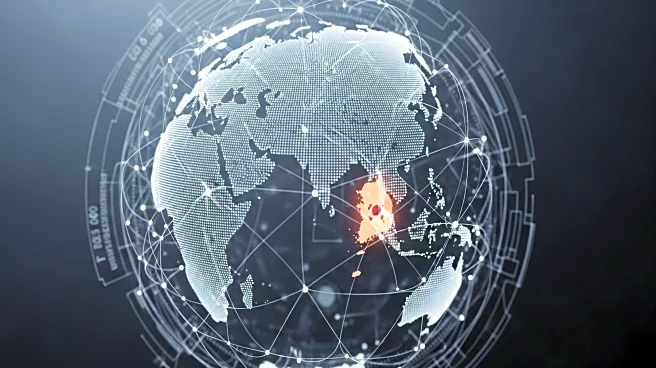What is the story about?
What's Happening?
South Korea's foreign ministry has announced plans to assess the impact of recent changes to the U.S. H-1B visa program on its companies and professional workers. The Trump administration has introduced a new requirement for companies to pay $100,000 annually for each H-1B visa. This development has prompted major technology firms to advise their employees holding these visas to remain in the U.S. or return quickly if they are abroad. The South Korean government is evaluating how these changes might affect its workforce and enterprises seeking to operate in the United States.
Why It's Important?
The introduction of a substantial fee for H-1B visas could have significant implications for South Korean professionals and businesses, particularly in the technology sector. The increased cost may discourage companies from hiring foreign talent, potentially reducing opportunities for South Korean workers in the U.S. This policy change could also affect the ability of South Korean firms to compete in the U.S. market due to increased operational expenses. The move is part of broader immigration policy changes under the Trump administration, which could impact international business dynamics and workforce mobility.
What's Next?
South Korea intends to engage with U.S. officials to discuss the potential impacts of the new visa policy. The outcome of these discussions could shape future immigration policies and bilateral relations between the two nations. Technology companies are expected to continue advocating against the fee increase, highlighting the importance of international talent for maintaining their competitive advantage. The South Korean government may also consider alternative measures to support its professionals seeking employment in the U.S.

















